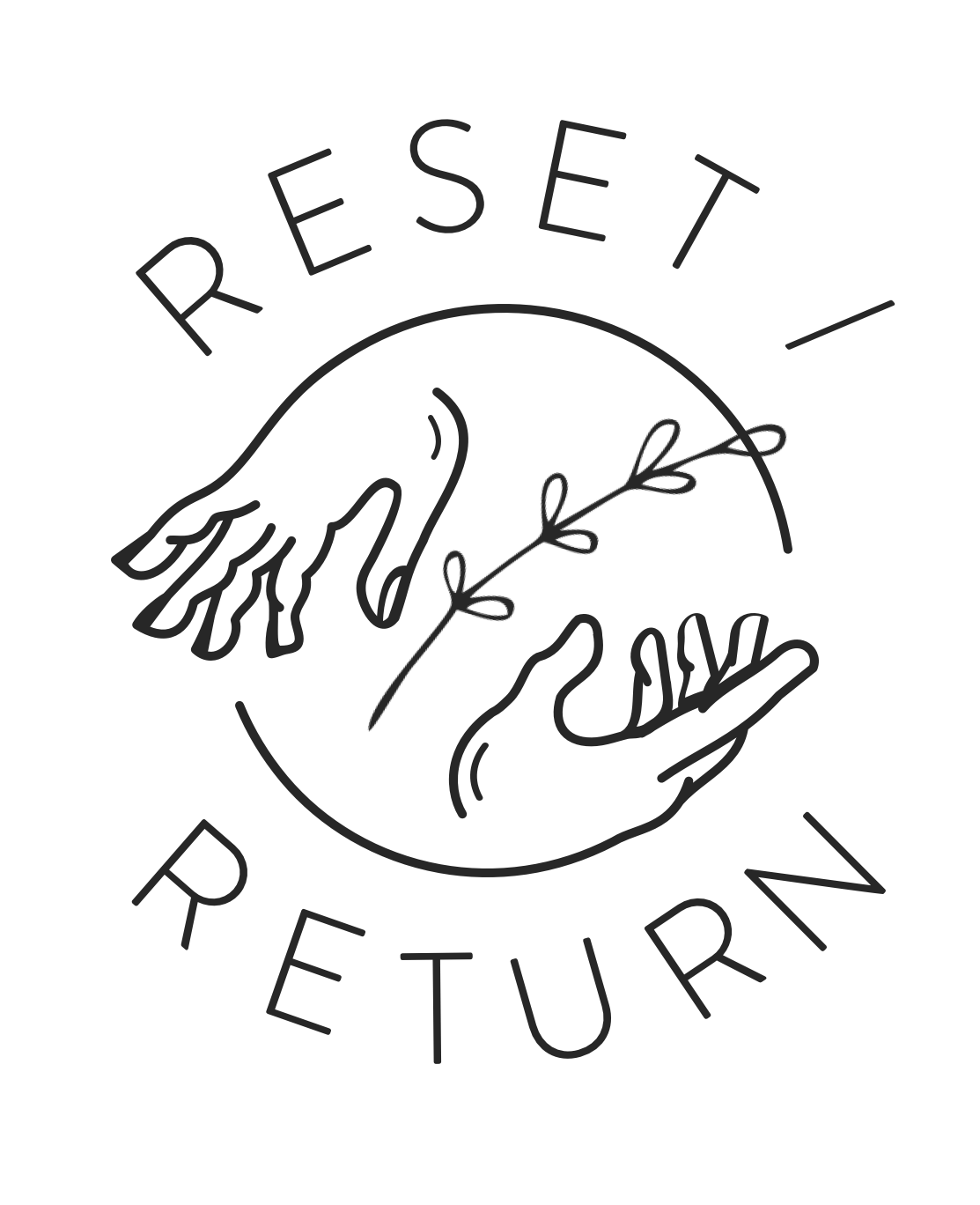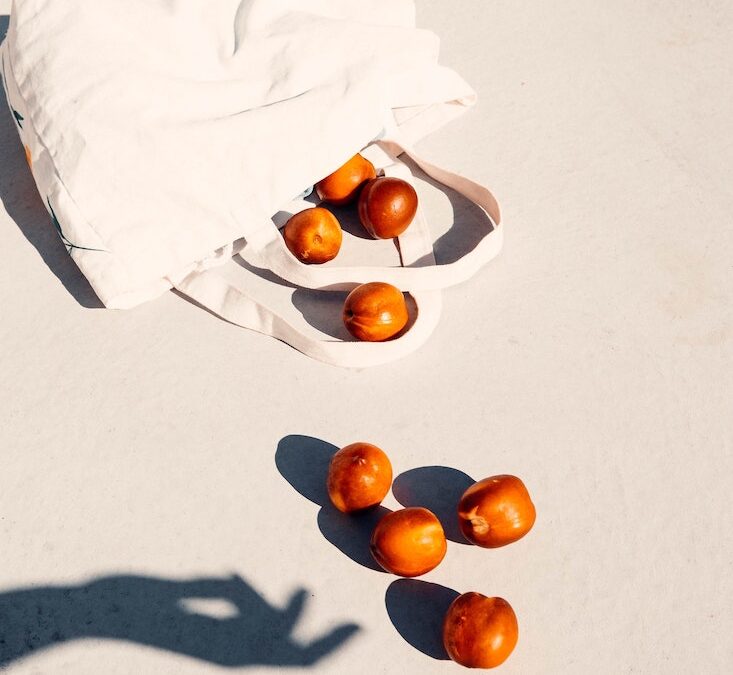Food production and agriculture is the second worst industry for the planet…
but it’s also the only industry every single one of us interacts with every day. From improving your wellbeing to impacting the rate of climate change, the sustainability of your eating habits can create positive transformation.
In a conversation with Veecoco co-founder Samuel Schanderl, I wanted to know how starting an online vegan cooking university changed his relationship with food. Samuel and Lucas are based in Germany and have traveled the world finding chefs and filming courses. In our conversation about how our personal perspectives on eating and food have changed, a few clear steps became apparent to create good habits that stick.
Here are 8 signs you’re eating sustainably:
- You notice how food makes you feel
- You’re vegan, vegetarian, or eating 10% or less animal protein
- You’re mindful of food sourcing, and seasonality
- You don’t force yourself to change your diet all at once
- You don’t feel stress around how you eat
- You’ve let whole foods change your palate
- You look for ‘regenerative farming,’ ‘rainforest friendly,’ and ‘fair trade’ labels, or B Corps
- You compost and use what you buy (or grow!)
Why does our personal relationship with food make a difference in sustainability? Ultimately, we could force ourselves to eat a strict low-carbon-footprint diet… but if we’re not nourishing ourselves, those habits aren’t sustainable either.
Check out these 8 signs of sustainable eating and see how much you’re already making a difference:
Samuel Schanderl and Katy Ward
Cover photo by Mathilde Langevin for Unsplash
Samuel Schanderl and Katy Ward
1. You notice how food makes you feel
Most of us realized that fast food makes us feel gross sometime in college. But what does it take to notice a subtle energy lift after a green juice, or a garden-picked salad?
Both Samuel and I used trial-and-error to find the foods that felt the best, and we both started to notice surprising results. Samuel dealt with skin problems that changed when he went vegan, and Lucas’s poor immunity changed for the better with his diet as well.
Isn’t it funny that eating food as nature intended makes us feel more alive? The path to sustainable eating and a healthy relationship to food can be as simple as eating what feels good.
For example…
All through my twenties, I’d thought coffee was the only thing keeping my energy and digestion going. I had regualr cravings for 100% dark bitter chocolate and almond butter, too. I kept eating cleaner and cleaner, but my digestion wasn’t improving… until I quit caffeine entirely and examined those cravings.
With a little research I realized that cacao, almonds, and coffee all increase dopamine in the brain. So I ran a little experiment.
I tried removing coffee, nuts, and cacao entirely and I started taking an herbal dopamine support supplement instead (dopa-bean, or Mucuna L-dopa). As my body detoxed from the caffeine and re-regulated with a healthy balance of dopamine (the hormone contributes to lower gut motility)… my troubling digestion completely healed.
Now, more kinds of foods feel good in my body… in fact, I’m starting to learn to cook with more variety from courses like Veecoco offers, now that I can digest new foods! But I was only able to find my healing diet by listening to my body’s signals and cravings.
2. You’re vegan, vegetarian, or eating 10% or less animal protein
When it comes to sustainability, food production is the second worst industry for the planet after fossil fuels. Contributing a whopping 13-18% of the world’s total greenhouse emissions, food production has a long way to go. Though monoculture farming (planting just 1 crop) depletes the soil’s ability to store carbon, the worst contributor to climate change in the industry is livestock.
Here’s the breakdown:
- Feed production and storage: 45% of emissions
- Gases emitted from animals: 39% of emissions
- Manure storage: 10%
- Transportation: 6%
- *Burning land for agriculture and deforestation are also major contributors, but more on that in point #7!
Crazy stat: If Americans all ate vegan, agricultural greenhouse gas emissions would decrease by 28%! Vegetarianism makes a close second. If you’re still eating meat, eating a low calorie percentage of the diet as animal protein is healthier for our bodies and the planet, especially when we buy local.
3. You’re mindful of food sourcing and seasonality.
But there’s a caveat to eating vegan or vegetarian, as Samuel mentioned in our chat.
“I think a lot of people see veganism as the solution to everything – but if I fly around the world for my vacation and only eat avocado toast and goji berries… we have to think about the supply chains behind all of that. That’s not sustainable either.
I’m not saying that you should only eat local, or that we should not eat mango anymore in Germany. But of course, I think there also needs to be a growing awareness that having all sorts of exotic foods all the time in countries such as Germany, is probably not the most sustainable way to eat.
A lot of the chefs we work with at Veecoco would rather focus on local ingredients. For instance in Germany, one of the chefs we work with tries to cook with mushrooms that are growing the area’s herb garden, and rosemary, thyme – a lot of different herbs. He’d rather use that instead of flying everything around the globe. Interestingly, I find that a lot of the chefs that we work with have this perception about sustainability and are aware of the ingredients that they use.”
Infographic from Gillco
4. You don’t force yourself to change your diet all at once
The fad diet is one of the most unsustainable food phenomena. How we eat is a set of habits linked to our emotions, biochemistry, and daily repetition. When we try to fix everything at once, nothing sticks (and we stress ourselves out!). Samuel added,
Dose Juice for Unsplash
Veggie Bowl illustration by Katy Ward. Pastel on paper
“It’s a big thing that people deal with: feeling anxious to get it 100% right when it comes to vegan food. If they come from very processed food and then they jump in right away 100% to only eat healthy foods, like kale and smoothies – it feels like a big struggle. That’s why it won’t stick. The way that you eat, you also have to enjoy it. It’s a slow transition to change your eating habits, depending on where you’re coming from.”
5. You don’t feel stress around how you eat
As much as huge amounts of people are not educated about nutrition and sustainability… it’s just as much an issue for people who want to be healthy to be really emotional and worried about what they eat.
Thinking and worrying about everything you eat and controlling it all the time is classified as disordered eating. It’s not a sustainable relationship with food when there’s stress attached to every bite. Samuel adds, “I remember when I was doing keto, and in my mind, carbs were the worst thing on earth. Even just the thought of eating a slice of bread was like, oh my god. And I felt terrible!
A friend of mine was telling me that if we are too strict about the way that we eat, it creates so much stress. If the way that we think about food raises your cortisol levels and makes you anxious, that’s actually the unhealthy part!
Not to say that you should just eat badly, but you don’t have to adhere 100% of the time, and then be devastated if you eat a piece of cake. Enjoy pizza with the family or a burger every once in a while!”
6. You let whole foods change your palate
One of the positive phenomena that come with eating more whole foods is that you get more satisfaction out of natural sweet and salty flavors.
Samuel shared, “I’ve always had a sweet tooth, but as a snack Lucas and I are looking for fruits nowadays, rather than have something processed from the store. That’s part of how the relationship with food changed, you appreciate more natural flavors. So for both Lucas and I, it’s not just eating food that we like but also eating unprocessed food, not 100% of the time but we try to go local and try to get organic.”
If you notice that you hit your sugar overload much more quickly than before, you’re on the path to eating more sustainably.
7. You look for ‘regenerative farming,’ ‘rainforest friendly,’ and ‘fair trade’ labels, or B Corps
This is an easy one… but it’s still so important. Additives like palm oil contribute massively to deforestation in the Amazon, so when we pay attention to “Rainforest Friendly” labels and avoid foods with palm oil (nut butters, processed butters, and processed breads), it makes a difference.
Fair Trade, organic, and B Corporation labels signify food companies that were responsible with their sourcing and have a much smaller waste footprint than similar options.
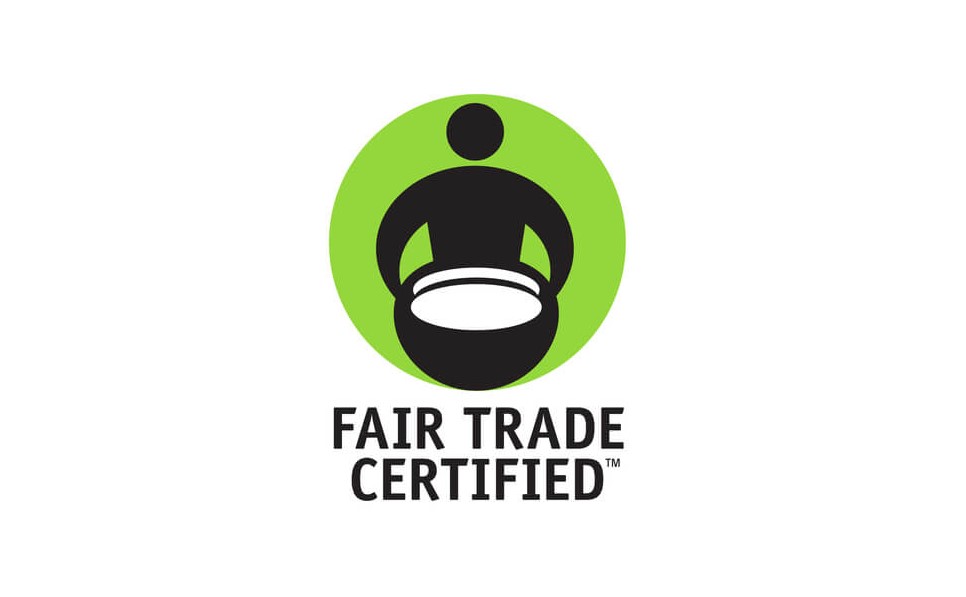
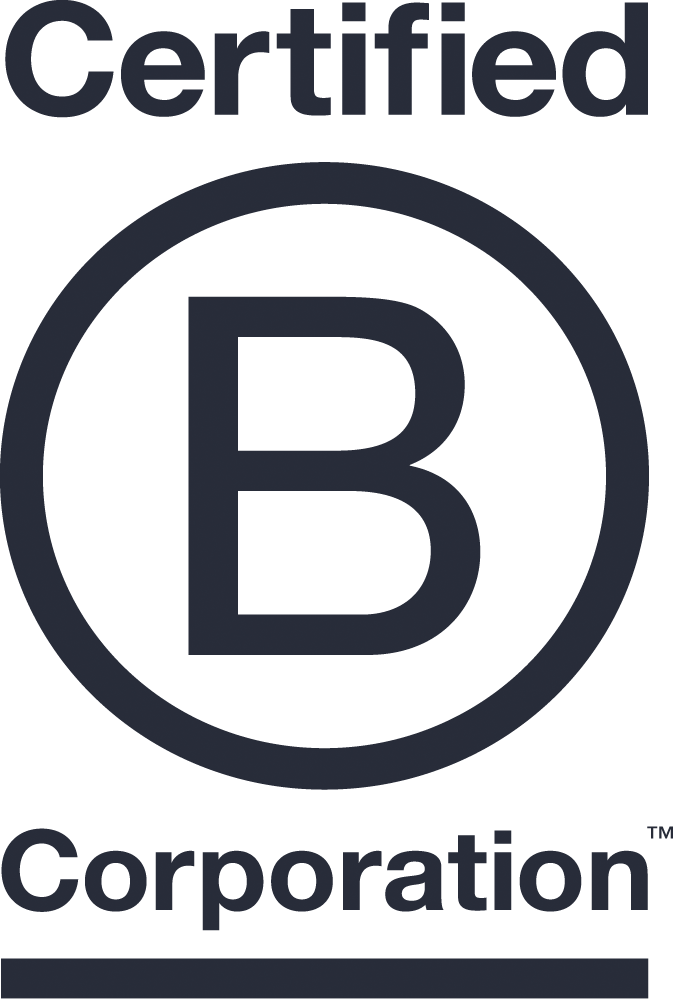
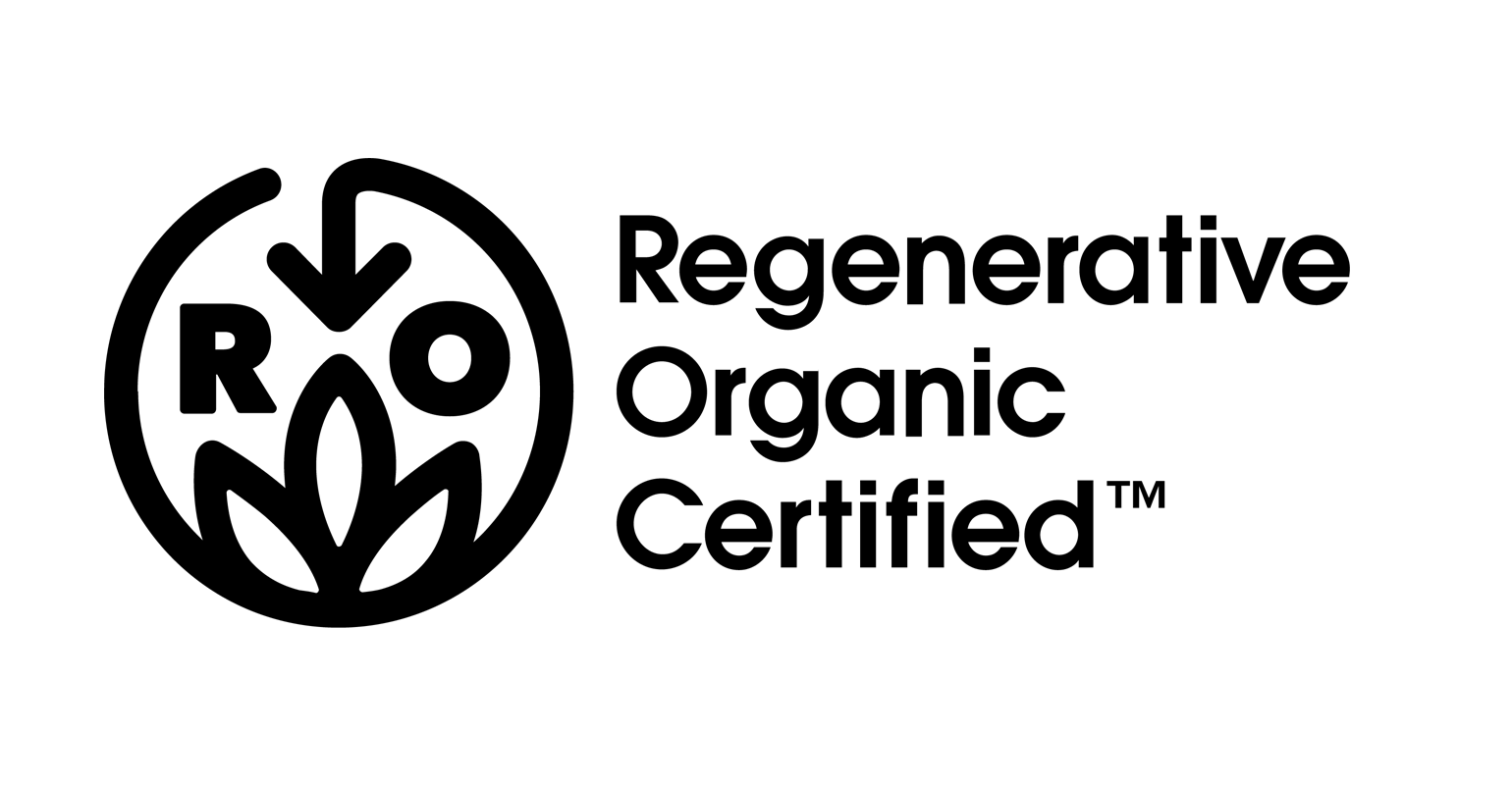
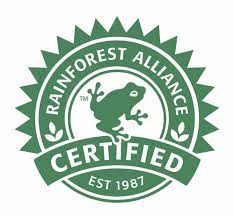
7. You compost and use what you buy (or grow!)
Did you know a third of all food is lost in the supply chain? In higher-income countries, most of that loss happens at the consumer and retail level.
The simple solution? Use what you buy, and compost! Contributing back to the soil makes a huge difference in nature’s ability to trap and store carbon – and to grow nutrient-dense foods. If you’re composting food scraps, you create your own closed system, reduced-waste engine just with your eating habits.
Of course, if you’re growing all of your own food and composting, you’re actually carbon negative with your eating habits. #Goals
If you’re participating in 4+ of these habits, give yourself a high five.
Transitioning to more and more sustainable thinking and eating is a step-by-step process, and being on the path is what matters.
Check out Samuel and Lucas’s vegan cooking courses from all over the world at Veecoco.com (or check out a free trial of their courses!) for sustainable cooking inspiration and an eye-opening look at food in other cultures. I recommend the Vietnamese pho course – so tasty!
subscribe for updates
on new posts and curated (good) news.
